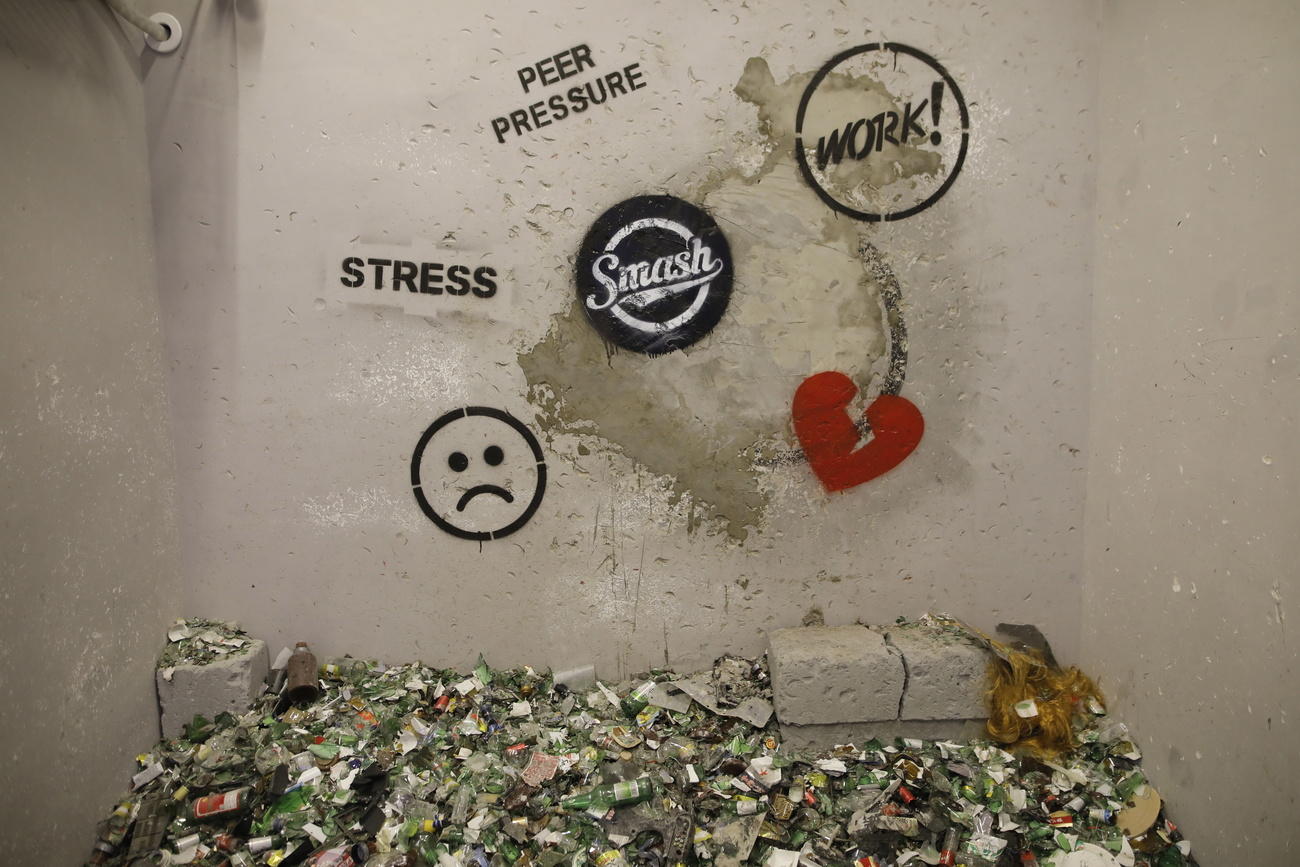
Lack of outdoor space inflamed family tensions during lockdown

Families without a garden or large balcony experienced more stress during the partial lockdown and the following months than families with such a space, according to a study. But fears of a dramatic increase in domestic violence have not materialised.
Research by the Lucerne University of Applied Sciences and Arts into how family life unfolded in Switzerland during these two periods found that the majority of the 1,037 people interviewed described the family atmosphere as rather harmonious, the study authors said on Saturday.
A good quarter, however, reported friction or tension. Families with access to a terrace or garden described their life during the partial lockdown between mid-March and mid-May as more harmonious than those without.
Income was also a factor: the more that money was lacking, the greater the tension. Families who had to care for children or elderly parents while working also experienced more friction.
“The pandemic does not create new risk factors, but rather anchors itself on known factors and reinforces them,” said Paula Krüger, researcher on violence at the Lucerne University of Applied Sciences and Arts.

More
Coronavirus confinement leaves most Swiss stressed
The good news, according to Krüger, is that the previously feared strong increase in inter-family violence has yet to be seen. However, the results do indicate that the long duration of the pandemic is wearing down people’s nerves, she said.
Verbal abuse
Nearly 5.5% of respondents reported that intrafamilial violence by an adult had occurred during the partial lockdown between mid-March and mid-May. This figure declined to 5.2% during the summer. However, the study authors noted that this period was half as long as the partial lockdown.
Some 4.5% of respondents said they had been violent towards a child during confinement. This figure rose to 5.6% during the summer. The most common form of abuse is psychological, particularly repeated verbal abuse.
The gfs.bern polling institute conducted the survey on behalf of the Lucerne University of Applied Sciences and Arts. It interviewed 1,037 people from all over Switzerland during the partial lockdown and four weeks over during summer. The study, which did not compare the answers with the pre-lockdown situation, will continue until the end of 2021.

More
Coronavirus: the situation in Switzerland

In compliance with the JTI standards
More: SWI swissinfo.ch certified by the Journalism Trust Initiative

























You can find an overview of ongoing debates with our journalists here . Please join us!
If you want to start a conversation about a topic raised in this article or want to report factual errors, email us at english@swissinfo.ch.